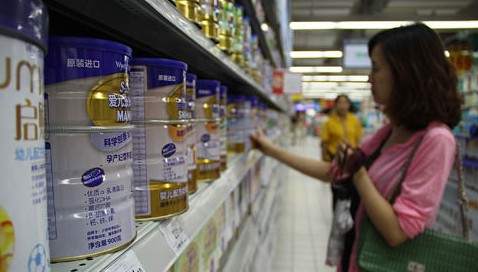A question of trust for tainted dairy industry
 0 Comment(s)
0 Comment(s) Print
Print E-mail Shanghai Daily, July 23, 2013
E-mail Shanghai Daily, July 23, 2013
The infant formula industry is in the spotlight again after the launch of a price-fixing investigation into foreign and domestic milk powder makers and intensified government efforts to consolidate a nationwide hodgepodge of producers.
The investigation by the anti-monopoly arm of the National Development and Reform Commission follows a 30-percent rise in imported baby formula since 2008. The surge in demand for foreign brands came after a nationwide scandal involving melamine-tainted domestic milk products. Six infants died and thousands were treated in hospital.
Worried mothers turned to foreign milk powder brands they viewed as safe, accepting rising prices as a sign of their trustworthiness, said Song Liang, a senior analyst at market research firm China Commercial Distribution Promotion Center.
"The high price of foreign milk powder has put a lot pressure on ordinary consumers," he said.
According to a 2009 Nielsen survey of nearly 2,000 shoppers for infant products in China, 73 percent of visitors to supermarkets said they buy foreign brands of milk powder. That figure rose to 77 percent when shoppers at maternity and infant specialty shops were queried.
Imports of bulk infant formula in the first half of this year rose by a quarter, the General Administration of Customs said. The price remained fairly stable.
Industry fragmented
Earlier this month, when the price-fixing investigation became public knowledge, leading companies such as Abbott, Danone baby foods unit Dumex, Nestle's Wyeth Nutrition and several domestic firms said they would be reducing retail prices of milk powder by up to 20 percent. It may take some time for that price-cutting to ripple down to retail channels.
Infant formula is big business in China. Retail sales of milk products, according to Euromonitor International, are expected to reach US$10 billion by 2014.
Though the industry is dynamic, it remains extremely fragmented.
At the Shanghai International Children-Baby-Maternity Industry Expo last week, many of the more than 1,400 exhibitors were displaying regional brands with little or no national recognition.







Go to Forum >>0 Comment(s)